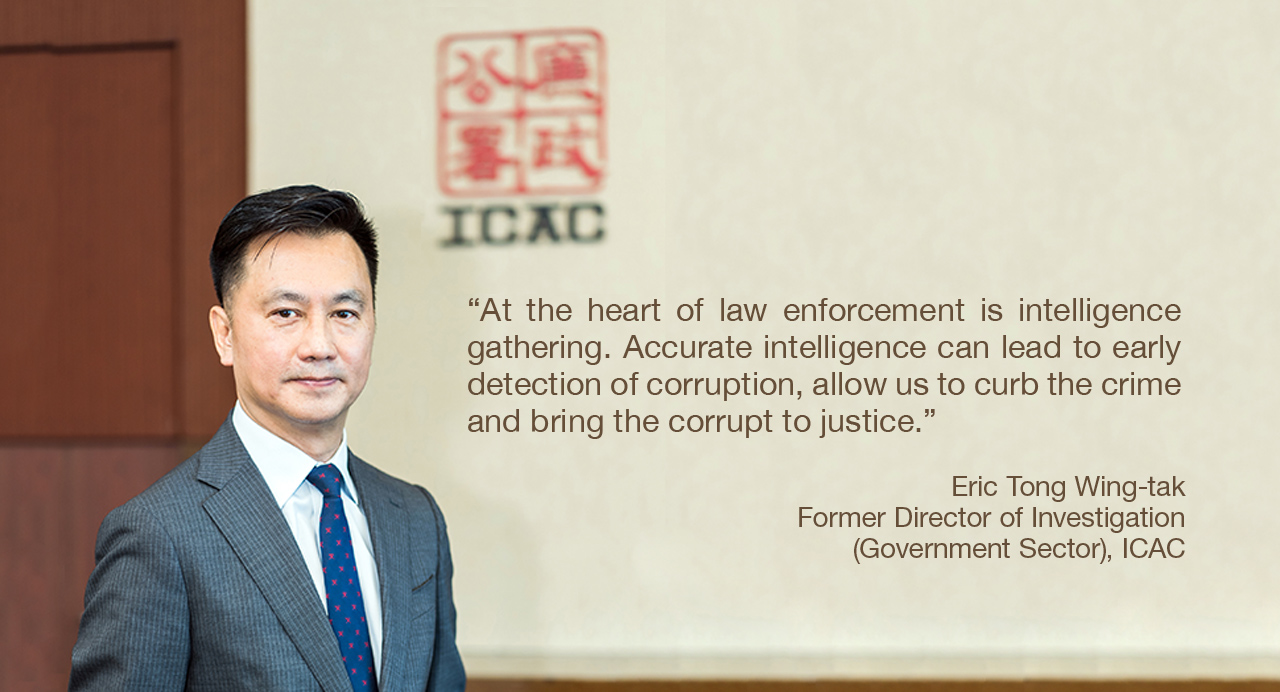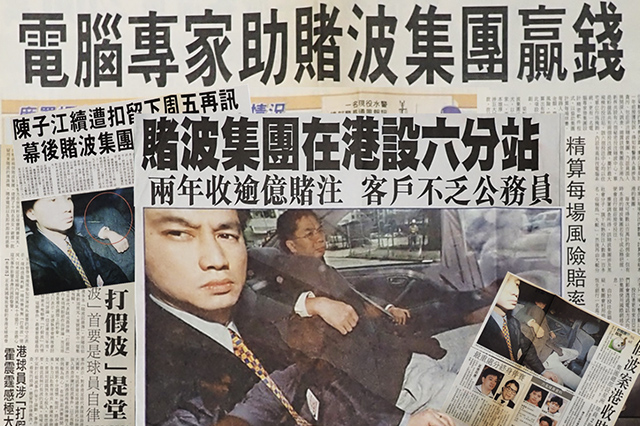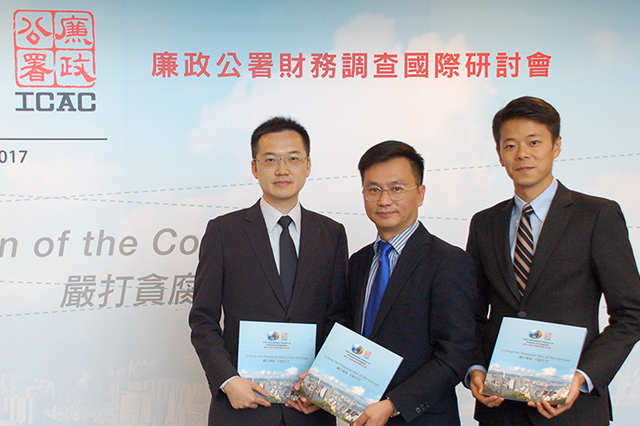
"I wanted to serve the community and the public. My intention was pure and I followed my heart," former Director of Investigation (Government Sector) Eric Tong Wing-tak recounted the moment he applied for the post of ICAC Assistant Investigator over 30 years ago. Mr Tong assumed the post of Director of Investigation in late 2018 and retired from the Commission in April this year after having completed his mission.
Before joining the ICAC, Mr Tong helped run a business of his family's. Throughout his career in the Commission, he was mainly tasked to tackle corruption in government departments and public bodies. He was also responsible for the gathering and dissemination of intelligence.
Mr Tong became an investigating officer of the Commission in the early 1990s when syndicated corruption in the public sector had largely been eradicated. The civil service was generally clean and sporadic small-scale corruption in individual departments, once identified, was swiftly weeded out by the Commission.
Expounding on his life-long career in safeguarding the integrity of the public sector, Mr Tong noted that when a complaint reached the ICAC or when corruption in the public sector was detected, very often corrupt dealings were still ongoing secretly. To crack the case, one had to seize the right moment to collect evidence and take appropriate enforcement actions.
Corruption is an insidious crime with no apparent victim, hence proactive detection is crucial. "At the heart of law enforcement is intelligence gathering. Accurate intelligence can lead to early detection of corruption, allow us to curb the crime and bring the corrupt to justice," Mr Tong noted.
Patience and meticulous analysis are also important. Mr Tong was once responsible for an investigation against a senior civil servant. The team spent about a year to conduct large-scale covert investigations in order to identify those involved in the corrupt dealings, their web of relationships, their modus operandi as well as other details. Thanks to those efforts, the ensuing enforcement actions were smoothly conducted, resulting in successful prosecutions with deterrent sentences being imposed on the convicted persons.
The ICAC has a dedicated group tasked to support interception and covert surveillance operations, such operations are stringently governed by the Interception of Communications and Surveillance Ordinance, the Code of Practice issued by the Security Bureau, the prescribed authorisations granted by the panel judges of the High Court, and the internal manuals of the ICAC. During Mr Tong's service, one of his prime tasks was to ensure that all applications for interception and covert surveillance were well justified and the implementation of the operations concerned was in strict compliance with the relevant requirements.
Mr Tong noted that difficulties and bottlenecks in investigations were not uncommon but they could be overcome by an investigator's crime-detection instinct, which could be acquired through experience and constant reflection. It was nothing mysterious at all, he added.


The anti-corruption journey of Mr Tong was driven by a calling to serve the community and his strong professional instinct. "My anti-corruption career at the ICAC is tremendously satisfying. I have fulfilled my mission to serve the public, and have contributed to the cause of corruption eradication, building a clean society and sustaining Hong Kong's long-term prosperity and stability," he said.
With an independent status enshrined in Article 57 of the Basic Law and staunch support of the Central People's Government, Mr Tong had every confidence that the ICAC and Hong Kong would continue to prosper.
Mr Tong was grateful to his former colleagues, supervisors and subordinates. He encouraged young investigators to embrace and sustain ICAC's work culture – to carry out all anti-corruption duties professionally with perseverance and dedication, adhere to the Commission's stringent requirements on personal integrity, and hold fast to the anti-corruption cause.